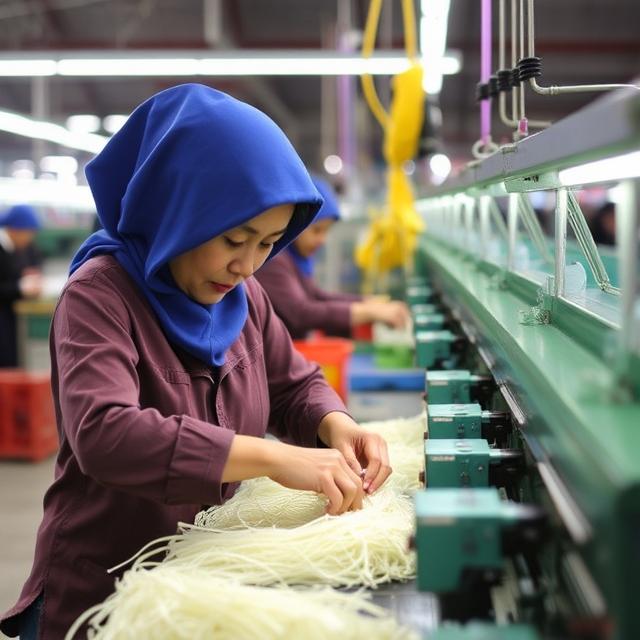Changing Landscape of Vietnam’s Cultural Craftsmanship
Vietnam has long been known for its rich heritage of craftsmanship and artisanal production. From handwoven textiles in Hoi An to the lacquerware in Hanoi, the traditional industries in Vietnam are woven into the cultural identity of the country. These industries not only provide employment but also preserve age-old customs passed down through generations. However, with the rise of automation and modern manufacturing processes, the foundation of these crafts is being challenged.
As machines take over the production line, the future looks bleak for many artisans. Machines have a faster, more efficient pace than the slower, handmade rhythm, and pressure is mounting on traditional craftsmen to conform or face redundancy. Although some industries hold out against this shift, others seek to bring in automation without sacrificing the integrity of traditional manufacturing techniques.
Automation’s Effect on Labor and Skill Transmission
Among the most evident effects of automation is that it disrupts labor patterns. The traditional industries in Vietnam basically have family businesses where skills are passed down through observation and manual practice. Automation basically lessens the need for such skills, which basically disorients the transmission of skills from one generation to the next. The children, at their younger years, do not want to acquire skills that no longer make economic security possible.
Most workshops in these industries now use semi-automatic looms or molding machines. Although productivity is higher, the requirement for high-skill artisans, who formerly molded each piece of crafts by hand, is reduced. As such changes are made, a growing number of workers with skills rooted in tradition are displaced or relegated to less-skilled jobs as support workers.
Hybrid Models: Combining Innovation and Tradition
While the challenges remain, it is promising that some communities are embracing hybrid approaches that balance innovation and tradition. In fact, for example, in Bat Trang village, the artisans especially known for ceramics marry up the new design technologies with the old hand-finish techniques. This way, their production would retain the characteristic appearance of traditional manufacturing techniques but still take advantage of technological advancements.
Other craft centers around the country are emulating this model. Digital marketing, online shops, and computerized inventory systems now underpin the business side of much artisan enterprise. These technologies help to extend access to markets without stripping away at the heart of conventional industries in Vietnam.
Such hybridization is of greater importance not only for survival but also for growth. Automation, if wisely used, can reduce the physical strain on older artisans while at the same time maximize effectiveness. It will also allow good craftsmen to focus on the more intricate and expensive parts of the product. This increases quality as well as value in the marketplace.
Cultural Implications and Loss of Authenticity
While automation is useful in practical terms, it creates concern with regard to the dilution of culture. A completely machine made product lacks flaws and individuality that hand-finished products possess. The critics see automating traditional manufacturing techniques as stripping the items of their cultural identity.
Above all, tourism is one source of income for several craft villages. Authenticity is also key to tourism. Tourists pay to see or participate in the traditional crafts. Replacing those with entirely mechanized processes might decrease the appeal and attractiveness that attract tourists to Vietnamese craft villages.

The Impact of Automation on Vietnam Traditional Industries Techniques
Government and Institutional Support
Cultural institutions and government agencies are acting to counterbalance the deleterious effects of automation. Plans for training artisans, certifying handmade products as authentic, and subsidies for hybrid methods of production are in place and growing. These actions bring traditional industries in Vietnam into the modern world while keeping their cultural heritage intact.
Academic programs contribute to this as well. Universities and schools are beginning to offer courses that combine technology with heritage, teaching students how to use automation responsibly to modify classic methods of production into respectful and enviro-friendly productions. These programs will arm future generations to carry on Vietnam’s rich cultural heritage with innovation tools.
Global Market Adaptation and Future Outlook
Adaptability is the new name of the game in a globalized economy. With a growing global demand for distinctive, ethical, and sustainable goods, Vietnam’s traditional industries can cash in by branding their wares as rich in culture and partly hand-made. Catching the wave between authenticity and efficiency isn’t a requirement-only a prospect.
By strategically integrating automation, traditional industries in Vietnam can co-exist without compromising the integrity of traditional manufacturing techniques. Thus, this two-pronged strategy ensures both economic sustainability and cultural continuity in a rapidly changing world.
Automation is reshaping traditional industries in Vietnam but careful integration preserves traditional manufacturing techniques for future generations.



